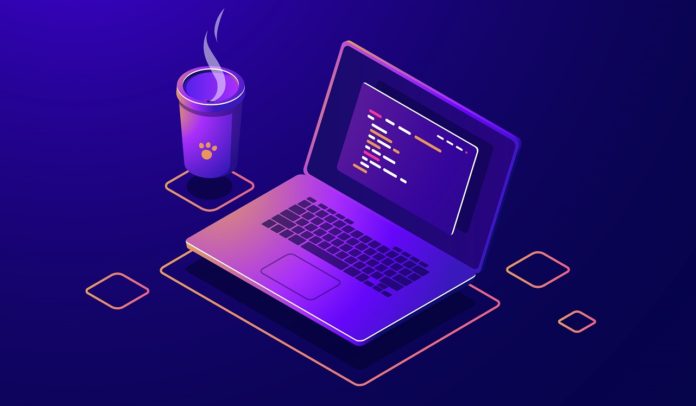There have been many Operating Systems over the years of computing. However, many people know only one or two of these operating systems, and the most common one is Windows. While in servers, Linux is the OS that you are more likely to find running. It accounts for a huge share of the server OS market but what about Linux on desktop computers?
Turns out there are various types of Linux operating systems to choose from for desktops. Two of the most popular desktop Linux versions being Ubuntu and Fedora. The dependable, open-source operating system was released in 1991 by Linus Torvalds for networks, but its application has grown to run web servers, devices, smartphones, and much more as it is customizable and royalty-free.
Why Linux?
In case you are wondering why would I want to run Linux on my desktop, you’re at the right place. By the end of this article, you will have 10 fascinating reasons to learn and use Linux, or at least give it a shot… ;))
1. Open-Source
Linux is an open-source operating system and falls under the FOSS (Free and Open Source Software) category. Its code is freely available to the public for modifications. Any developer can view, edit, or contribute to the code that was used to design it. Most importantly, it is a very exciting deal for programmers to create their own version of the OS and tweak it for a customized look and feel.
2. Configurable Structure
Linux is ordered as layers namely the Kernel, System Library, Hardware layer, System, and Shell utility which can be configured easily. If you don’t like the way something is working, it can be changed. Linux does not need a GUI to interact with, all this can be done using just the command line i.e., the shell. Linux commands can be used to carry out various tasks like changing the directory or display the files and folders in a directory, etc.
Linux system can also be profoundly fine-tuned to draw the maximum outcomes from the hardware. Since it is open-source, users have the flexibility to see, alter or create their own version of the source code.
3. No Limitations
Linux has no limitations. Waiting endlessly for a security patch or a feature update is not necessary for Linux as it has the largest number of servers running on the Internet. The system is extremely reliable and stable as opposed to most products in the market. Moreover, Linux is considered as one of the safest Operating Systems for which all processes are essentially guarded.
4. Lesser Hardware Necessity
Linux is highly valuable in terms of the system’s resources. As Linux can be modified, installation for users and particular hardware specifications is easy. The flexible installation mode enables users to pick whatever they want to install. This even lets developers install Linux on old hardware and have the optimal performance of all the hardware resources available.
5. Great Community Support
Linux has been in existence for 30 years, and its community has grown over the years. Whatever problem you might be facing, there will always be multiple threads on the solution for your issue in the community. Furthermore, many active Linux enthusiasts are always available to answer to a relevant thread that they may have expertise in. Certainly, you will never be alone with this OS.
6. Ease of Use
Contrary to the common belief that Linux is only for geeks, this OS has now become user-friendly and has a good graphical user interface (GUI). Nearly all functionalities available in windows are present in Linux. The GUI has advanced to the extent where most of what users generally need can be built on Linux, just as easily as Windows.
Although it is believed that Linux is not gamer-friendly, many games are now available on it as well.
7. Ideal for Programmers
No matter which programming language you’re targeting, Linux supports most of them. Not just the support of various languages, it also has a large number of tools such as programming functions, native libraries, etc.
8. Variety of Distros
Due to its open-source environment, numerous developers and organizations come out with their customized variants of Linux, termed distributions.
For example, there are Linux distributions for developers, there are Linux distributions for old computers, there are Linux distributions for hackers, and the list goes on. Basically, there is a Linux for everyone.
Approximately, over 500 versions of Linux are being developed. This enables a plethora of choices for end-users as they can choose the distribution they like based on their preferences.
9. Privacy
Linux values privacy like no other. Most other Operating Systems collect data of consumers and send them back to the organization for big data analysis. Switching off the computer’s capability to gather and share this data is a labyrinth.
10. Simple Maintenance
As the OS can be updated centrally by the user and software can be installed easily, maintenance of Linux is not a tedious task. Each variant of Linux has its central software repository. This repository is used to update the system and keep it secured. It also offers timely updates without the need of rebooting the system.
Final Thoughts
Linux was mainly used for servers and was not considered fit for desktops. But its user interface has been developing steadily over the past few years. Today, the refined user-friendly interface is good enough to replace Windows or any other OS on desktops. Its more secure and reliable work conditions along with powerful tools aid in more productivity and efficiency.
Also Read: Ubuntu vs Linux Mint – Which One to Choose?









